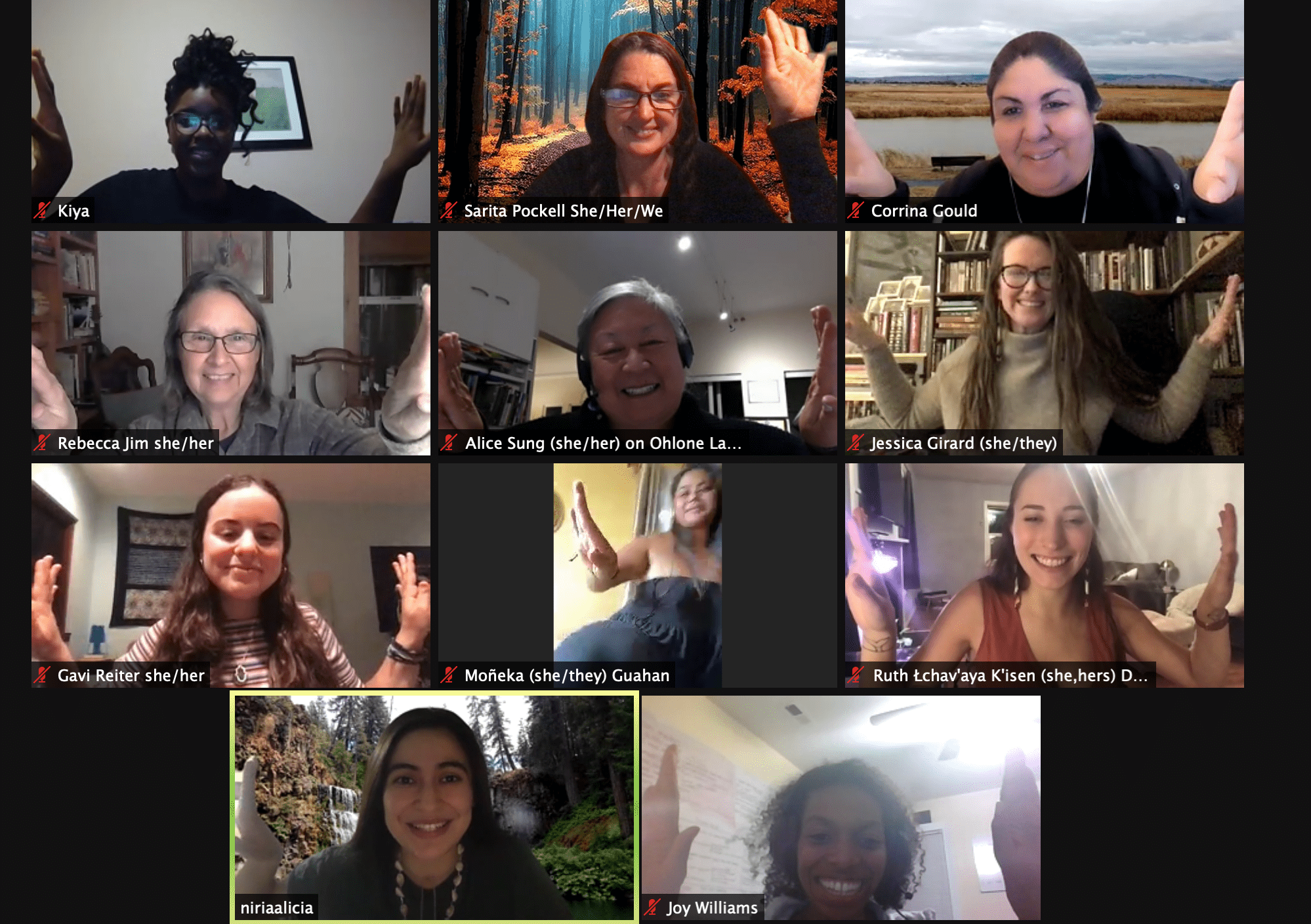This year, the world witnessed a deadly pandemic, catastrophic natural disasters worsened by the climate crisis, and increasingly visible consequences of white supremacy and patriarchy -- all of which have laid bare deeply ingrained structures of inequality. It is now more clear than ever that we need major structural change and leaders who are prepared to tackle these intertwined crises -- women leaders.
The Sierra Club and Women’s Earth Alliance (WEA) held their second-ever US Women’s Grassroots Accelerator program. The Accelerator brought together 24 women environmental leaders from across the US, Puerto Rico, and Guam to strengthen and scale their individual initiatives, deepen their strategies for change, and build powerful alliances within and across movements.
Between August and December, the women gathered weekly over Zoom to engage in learning modules and programming oriented around catalyzing their grassroots environmental initiatives. The curriculum included sessions on weaving networks around common causes, strategy for research and advocacy, holistic wellness and leadership practices, and fundraising. The program culminated in a virtual collaboratory, when the women hosted workshops on skills and knowledge related to their initiatives. Now that the accelerator program has finished, the participants are eligible for a grant from the Sierra Club and WEA, and are poised to strengthen their own work with the newfound knowledge and support from their cohort.
The women work on issues ranging from food sovereignty to clean transportation, anti-toxics advocacy to building environmental youth movements. The Accelerator program identified and elevated linkages across these initiatives, highlighting the common frameworks and goals of dismantling white supremacy, responding to COVID-19, and building enduring, effective, and equitable grassroots organizations. Along the way, the women offered each other guidance and strategies.
This year’s cohort includes Ruth Łchavaya K’isen Miller and Jessica Girard, who are focused on decolonizing environmental advocacy in Alaska. They work through Native Movement, an organization focused on building grassroots power rooted in an Indigenous worldview. They hold training workshops for broad-based and grassroots NGOs to orient their efforts toward place-based knowledge and decolonizing frameworks that lift up Indigenous knowledge and dismantle systems of oppression. They offered the other women strategies and healing practices for decolonizing their own minds and initiatives and reinvesting in Indigenous knowledge systems.
In response to the COVID-19 crisis, another accelerator participant, Xochitl Bernadette Moreno, founded EFAM (Essential Food and Medicine), which redirects food and medicine to frontline workers and unhoused, elderly, undocumented, formerly incarcerated, and immunocompromised groups. She aims to socialize health and protect the wellness of the planet and its people. Xochitl’s initiative recognizes that food and health insecurity exist independently of the pandemic, and her aim is to build wellness systems that address these issues in the long term. She presents a framework for scaling a grassroots organization that both meets the moment and addresses deep systemic issues.
Mackenzie Feldman, one of the Accelerator program’s youth leaders, founded Herbicide Free Campus as a student group at the University of California, Berkeley. Since graduating, she has expanded the organization, which aims to eliminate the use of herbicides and pesticides on school campuses across the country. She now partners with 18 schools in 10 states. During the collaboratory event, Mackenzie shared her experience building a grassroots organization from the ground up, advising the other women on how to gain funding and fiscal sponsorship and structure a nonprofit organization.
These are just a few examples of the incredible initiatives that our accelerator participants have been scaling.
This year, despite the accelerator being converted to a fully virtual format, the women formed profound connections based on the sharing of knowledge, identifying and coming together around their common missions. Upon graduation from the Accelerator, the relationships that formed over Zoom and in the program’s WhatsApp group are now a part of a vast network of women environmental leaders cultivated by WEA.
During the Accelerator “closing circle,” Moñeka de Oro reflected on her bond with the other participants: “For me, this WEA experience has been just expanding more and more my understanding of what interconnected means. How we use and traverse this Zoom space to connect on a really deep level is amazing.” The immense power of common cause, solidarity, empathy, and friendship allowed the women to build relationships without ever meeting in person.
WEA’s Grassroots Accelerator fills a huge, gendered gap in investment in climate solutions, identifying women’s leadership as a leverage point for increasing our collective climate resilience. Because women are disproportionately affected by the climate crisis, they are often on the front lines fighting to protect their access to clean food and water and air and preserve their land, sacred sites, and lifeways. However, their work is all too often underresourced. Investing in women to overcome structural inequality and scale solutions for change is a critical way forward.
These women’s stories perfectly illustrate Amanda Millstein’s assurance at the closing circle: “It’s really been through WEA that I’m so much more comfortable saying that women are going to save us.”
